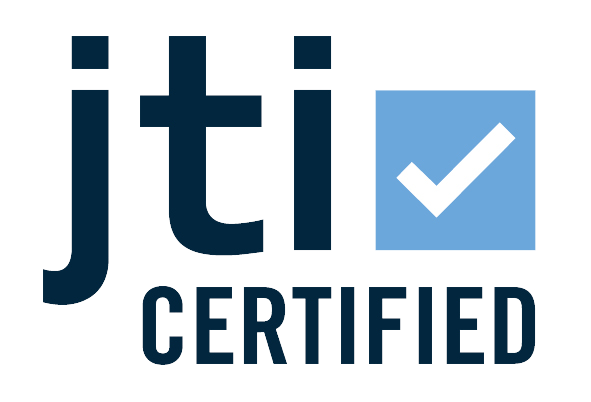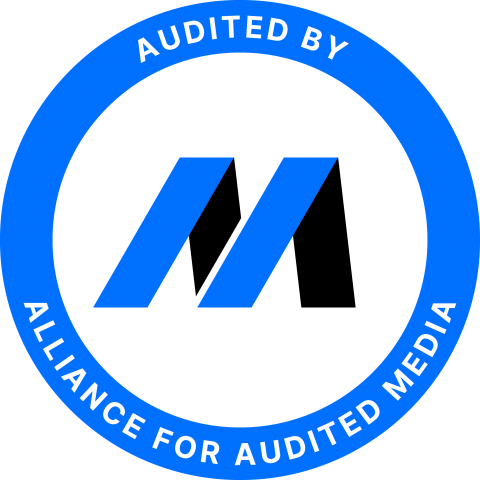
The Media Outlet has been independently certified according to the JTI Programme and CWA 17493:2019.

Certified by
Alliance for Audited Media – Northern America
Date of certification
13/09/2024
Contact details
1600 McConnor Parkway
60173-6890 Schaumburg
United States of America

4. Disclosure of Type of Ownership
4.1. Privately held
The Media Outlet shall declare its legal status clarifying what type of company it is registered as. For example, if it is a limited or incorporated company. It should use the legal definition used in its country of registration and provide the relevant registration information.
Is the Media Outlet or the Legal Entity privately owned?
No4.2. State or Publicly owned
The Media Outlet shall state clearly if it is fully or partly owned by the government, a state institution, or other public body, providing information on the specific department, entity, or body that exercises that ownership and its relationship with the government.
Is the Media Outlet or the Legal Entity owned by the state, a unit of the government or any other public entity?
YesWhat specific department, entity or governmental body has ownership?
From: https://www.tbs-sct.gc.ca/pol/doc-eng.aspx?id=32574§ion=html
Crown corporations are separate entities from government departments and are established through legislation, letters patent or articles of incorporation (usually under the Canada Business Corporations Act). They report to Parliament through a responsible portfolio minister, with the support of the portfolio secretariat.
They fill various public policy needs, in areas where outside expertise, managerial autonomy, openness to competitive market forces, or independence from government influence are required. Their mandates cover a wide range of activities in different sectors of the economy, including the financial, transportation and infrastructure, social and cultural sectors.
Crown corporations are not subject to the same administrative requirements as government departments. Crown corporations operate with considerable autonomy under the governance provisions in Part X of the Financial Administration Act, under their constituting statutes or under both. They also have additional managerial and administrative flexibility when dealing with customers, suppliers or competitors in commercial or quasi-commercial contexts. Appropriate ministerial control and oversight must always be maintained and is set out in legislation.
Describe the status of the Media Outlet or Legal Entity and its relationship with this body.
5.1 Board of directors
Each Crown corporation's board of directors is appointed by the government. Acting in the best interests of the corporation and exercising due care and diligence, the board:
-oversees the corporation's business activities;
-approves corporate plans and budgets that set out the corporation's strategic direction;
-submits approved documents to the responsible minister for recommendation to the Treasury Board for approval; and
-contributes to the overall functioning of the portfolio.
5.2 Chief executive officer
The corporation's chief executive officer (CEO), usually appointed by the Governor in Council, is:
- responsible for the corporation's day-to-day operations;
- accountable to the board of directors for the overall management and performance of the corporation; and
- responsible for ensuring that the corporation achieves the planned results set out in the corporate plan.
5.3 Responsible minister
Every Crown corporation has a responsible minister, who acts as the shareholder of the Crown corporation, on behalf of the government.
The responsible minister is accountable for:
- providing guidance to the board of directors for how the Crown corporation's objectives are to be interpreted; and
- monitoring and engaging with the corporation, as needed, to ensure that the corporation is meeting expectations.
In fulfilling this role, the responsible minister:
- engages regularly with the corporation (through a variety of mechanisms, including regular meetings, mandate letters or statements of priorities and alignment, and portfolio secretariats) to convey the government's expectations concerning the corporation's public policy objectives;
- guides and reviews the development of potential new activities of the corporation in respect of potential public policy objectives and benefits;
- guides the development of performance indicators relating to the delivery of public policy objectives;
- monitors the corporation's performance against public policy objectives, including regularly reviewing the alignment and appropriateness of the Crown corporation's mandate with the government's public policy objectives;
- recommends the corporate plan and the operating and capital budgets (as relevant) for approval by the Treasury Board;
- tables approved corporate plan summaries, budgets and annual reports in both houses of Parliament; and
- provides information to Parliament and Canadians about the corporation by answering questions in Question Period, coordinating materials for committee appearances or parliamentary returns, and, where appropriate, coordinates activities relating to public communications.
5.4 Deputy minister and portfolio department
The deputy minister responsible for a Crown corporation:
- provides policy advice and public service support to the responsible minister, as required, including reviewing and commenting on the corporation's corporate plan;
- promotes appropriate policy coordination and ensures integration in the undertakings of their minister's portfolio;
- coordinates and communicates with Crown corporations, ministers and the Treasury Board of Canada Secretariat to ensure timely approval of plans and budgets; and
- coordinates the attestation by the chief financial officer for the portfolio department, which is required, for Estimates purposes, for new funding requests by Crown corporations that receive government funding.
4.3. Publicly Traded Company
The Media Outlet shall indicate if it is a publicly traded company and where it is legally registered and where its shares are traded. The company shall also provide its share name and indicate what proportion of its ownership is publicly traded.
Is the Media Outlet or the Legal Entity publicly traded?
No4.4. Other
If the ownership of the Media Outlet is different from the above, for example if the organisation is a co-operative or member-owned, the Media Outlet shall indicate its form of ownership and provide links to local legal definitions of the type of ownership. If the ownership of the Media Outlet is made up of a combination of the above types of ownership, then it shall provide a breakdown of the ownership indicating clearly which share is which ownership type.